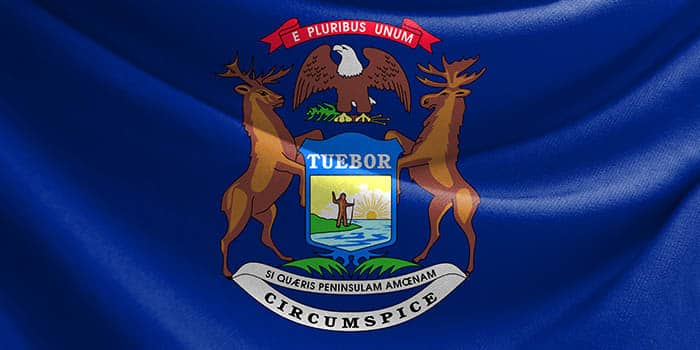- Casino
- By State
- Alabama
- Alaska
- Arizona
- Arkansas
- California
- Colorado
- Connecticut
- Delaware
- Georgia
- Florida
- Hawaii
- Idaho
- Illinois
- Indiana
- Iowa
- Kansas
- Kentucky
- Louisiana
- Maine
- Massachusetts
- Maryland
- Michigan
- Minnesota
- Mississippi
- Missouri
- Montana
- Nebraska
- Nevada
- New Hampshire
- New Jersey
- New Mexico
- New York
- North Carolina
- North Dakota
- Ohio
- Oklahoma
- Oregon
- Pennsylvania
- Rhode Island
- South Carolina
- South Dakota
- Tennessee
- Texas
- Utah
- Vermont
- Virginia
- Washington
- West Virginia
- Wisconsin
- Wyoming
- By State
- Slots
- Poker
- Sports
- Esports
Cullen Toothless to Investigate Banks’ Role in Money Laundering

Commissioners investigating money laundering in British Columbia (BC) were told during the in-camera hearing of anti-money laundering (AML) and compliance officers at some of the top banks in Canada that the jurisdiction of the investigating body is limited.
In-Camera Hearing for Banks
The Cullen Commission, the body spearheaded by Justice Austin Cullen which was launched by the provincial government in February to investigate claims casinos in BC facilitated money laundering, decided the public inquiry should go private while hearing allegedly sensitive information related to “typologies and methods of money laundering” in detail, including new cutting-edge technologies, provided by the top bankers.
The decision the commission took Friday turned out to be an act for the public only, as the moment things were about to get serious for the banks, the commission which dragged through the mud casinos, real estate companies, lawyers and accountants, ATM operators and many others, immediately showed banks would be treated differently.
Anonymous Bank Drafts for Millions of Dollars
A report from the Royal Canadian Mounted Police (RCMP) in March 2018 informed national institutions that its investigation had come across 3,000 anonymous bank drafts to the amount of C$150 million which were negotiated through the casinos in BC at 98%, C$147 million, from the Big Six, a common term referring to the top banks in Canada.
Bank drafts are common bank instruments that provide the payee a secure form of payment as they are guaranteed by the issuing bank, as the amount on the draft is withdrawn from the customer account at the moment the draft is issued and held in a general ledger account until the draft is cashed.
Nicholas Isaac, Associate Commission Counsel for the Cullen Commission, noted that the top two banks led by Toronto-Dominion Bank (TD) accounted for 66% of the total value of the drafts, or around 63% of the negotiated value, an estimated C$100 million.
As the RCMP suspected the anonymous bank drafts were part of a money laundering scheme, other banks such as HSBC Canada reacted immediately and ordered tellers to write the name of the draft purchaser on the draft, while TD did not do anything for 2 more years, time during which it processed another C$27 million of anonymous drafts.
You Are Confined to the Ambit of the Summons
However, when lawyer Toby Rauch-Davis, representing one of the organizations granted participant status by Commissioner Cullen, Transparency International Canada (TI Canada), attempted to hold to account the first participant in the panel hearing, the global chief of anti-money laundering for the Toronto-Dominion Bank Group Michael Bowman, Commissioner Cullen objected.
“You are confined to the ambit of the summons [Bowman had been sent to appear].”
Commissioner Austin Cullen
Rauch-Davis then continued by asking Bowman whether the Financial Transactions and Reports Analysis Centre (Fintrac) issued any guidance or fines to TD after the problem became known, only to meet another objection.
“The relationship TD has with its federal regulators is beyond the jurisdiction of this commission.”
Lawyer Jill Yates
Cullen then continued along the same lines that the commission was limited in its jurisdiction and getting into areas where it can do nothing, an expression of lack of legal power upon which pounded the representative for the Government of Canada, the federal lawyer from the Department of Justice Jan Brongers.
Brongers outlined the legal complexity of the question, a complexity Cullen already flagged in his interim report submitted to the participants in the inquiry.
“…This isn’t the first time questions have been asked asking for opinions from witnesses with respect to issues that at the end of the day it’s not evident this commission has any jurisdiction to opine on.”
Jan Brongers, Department of Justice
Project Athena
According to documents tendered as exhibits to the inquiry but not made public, the RCMP initiated Project Athena in 2018, under which the police officers held meetings with representatives from the Big Six. Attending the meetings, Anna Gabriele, AML manager in the financial intelligence unit for TD, provided further information.
During these meetings, the RCMP asked the banks to check on a list of individuals and pinpoint those which were clients, and then report any suspicious transaction to Fintrac so that a police investigation can be triggered. In addition, the police asked the banks to issue drafts with the purchaser’s name stated on them – and all these with no legal authorization or production order.
Gabrielle said it recommended TD comply with the request or else the bank risked becoming an outlier, but was told in July 2019 to leave the issue to an executive committee. Unlike her, Bowman did not even hear about the issue until December 2019.
According to him, the RCMP request for exchange of information overlooked legal and privacy concerns, making it unacceptable within the constraints of the Canadian privacy legislation. And besides, he had other priorities which topped the issue. It was not until September 14, 2020, when TD started manually adding purchaser’s name on the drafts, Bowman told the inquiry.
The Big Six powered the money flow through BC casinos, probably facilitating money laundering in the process, yet BC government sets a commission which has questionable jurisdiction to get to the bottom and inform the public. And depending on how the jurisdiction issue is solved, the public may never know.
Related Topics:
With 5+ years of experience as an analyst, Julie—affectionately known as 'Jewels' in the office—has quickly become our go-to expert in the forex and cryptocurrency space. Her keen attention to detail and deep understanding of the industry make her an invaluable asset. Julie's expertise and enthusiasm have made her the top choice to co-pilot educational initiatives alongside Mike, bringing knowledge to the masses.
Previous Article

Legal
January 23, 2021
Hard Rock Casino near Bakersfield, CA Receives Federal Approval

Must Read
More Articles



Sports
July 3, 2025
Missouri Sports Betting Open for Public Debate

Lottery
July 2, 2025
Someone Won $865,147 at Michigan Diner












